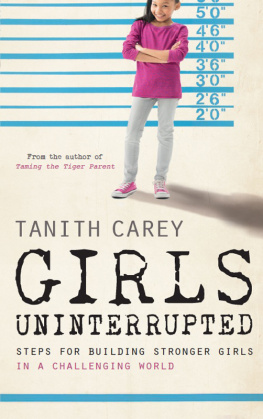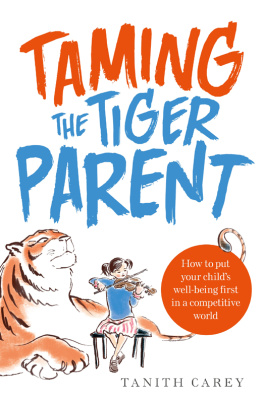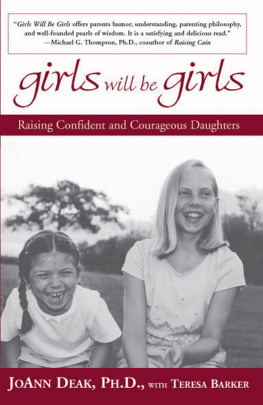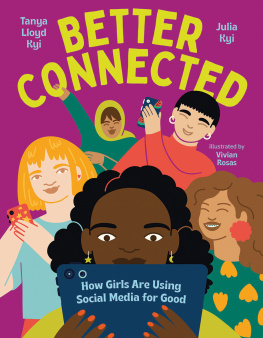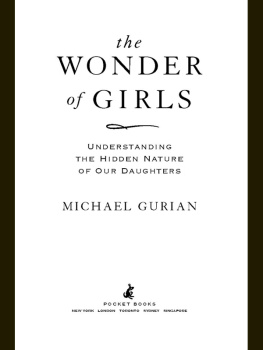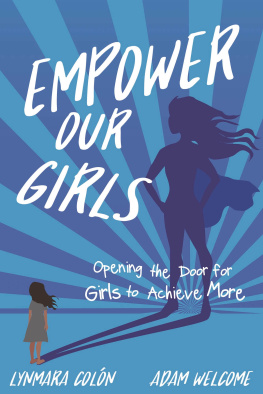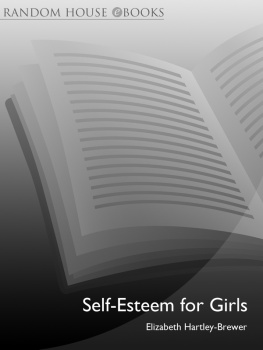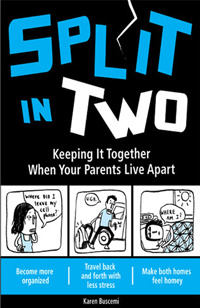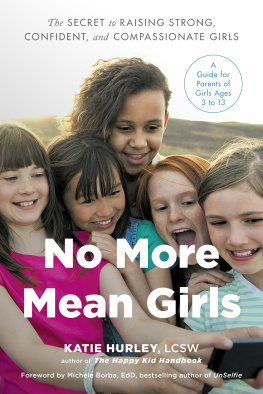GIRLS
UNINTERRUPTED
About the Author
Tanith Carey writes books which aim to lucidly set out the more pressing challenges for todays parents and set out achievable strategies for how to tackle them. Her previous book, Taming the Tiger Parent: How to Put your Childs Well-being First in a Competitive World has been called a critique to re-orientate parenting by Steve Biddulph. As an award-winning journalist, Tanith writes for a range of publications including the Guardian, the Daily Telegraph, The Sunday Times, the Daily Mail and the Huffington Post. This is her seventh book.
GIRLS
UNINTERRUPTED
STEPS FOR BUILDING STRONGER GIRLS IN A CHALLENGING WORLD
TANITH CAREY

Published in the UK in 2015 by
Icon Books Ltd, Omnibus Business Centre,
3941 North Road, London N7 9DP
email:
www.iconbooks.com
Sold in the UK, Europe and Asia
by Faber & Faber Ltd, Bloomsbury House,
7477 Great Russell Street,
London WC1B 3DA or their agents
Distributed in the UK, Europe and Asia
by TBS Ltd, TBS Distribution Centre, Colchester Road,
Frating Green, Colchester CO7 7DW
Distributed in Australia and New Zealand
by Allen & Unwin Pty Ltd,
PO Box 8500, 83 Alexander Street,
Crows Nest, NSW 2065
Distributed in South Africa by
Jonathan Ball, Office B4, The District,
41 Sir Lowry Road, Woodstock 7925
Distributed to the trade in the USA
by Consortium Book Sales and Distribution,
The Keg House, 34 Thirteenth Avenue NE, Suite 101,
Minneapolis, MN 55413-1007
Distributed in India by Penguin Books India,
7th Floor, Infinity Tower C, DLF Cyber City,
Gurgaon 122002, Haryana
ISBN: 978-184831-820-5
An earlier edition of this book was published under the title
Where Has My Little Girl Gone? by Lion Hudson in 2011.
Text copyright 2015 Tanith Carey
The author has asserted her moral rights.
No part of this book may be reproduced in any form, or by any means, without prior permission in writing from the publisher.
Typeset in Joanna by Marie Doherty
Printed and bound in the UK by Clays Ltd, St Ives plc
For my daughters, and yours.
INTRODUCTION
W hen I chat to my two daughters, thirteen-year-old Lily and ten-year-old Clio, we cover all the usual topics: how their school day went, whats for dinner, why cant we get Honey, our dog, to behave.
But throughout the course of our conversations, lots of other, slightly trickier subjects also crop up, like: why is Miley Cyrus naked in her latest video, but for a pair of Dr Martens? I mean, I get why shes sitting on a wrecking ball, Clio has said, because thats what shes singing about. But why she doesnt she have any clothes on? From time to time, Lily has also wondered why every year at her primary school fair there is a beauty tent for girls to get their nails manicured, when boys never have to bother about how they look.
So was I pleased when, the other day, Clio asked me why Rapunzel just didnt cut off her own hair and make it into a rope to get down from the tower, instead of waiting for a prince? Am I delighted that Lilys favourite game as we wait in tube stations is spot the model whose been airbrushed? Frankly, yes.
Does it make me a humourless, ball-breaking man-hater? Am I brainwashing my poor little girls with politically correct feminist theory? Some people might think that. But I believe I am simply encouraging my girls to open their eyes to a world which might otherwise give them deeply unhelpful messages about who they are, and how they should feel about themselves.
My daughters are not weak and defenceless and neither are yours. But in a world where many pubescent girls say they are more worried about getting fat than their parents dying or the outbreak of nuclear war, my view is that our daughters need help to work out why so many of their gender think this way so they dont end up thinking like that too. They need to know that, in the words of the late Anita Roddick, there are over 3 billion women who dont look supermodels and eight who do. Because if our daughters are allowed to believe what they see all around them, they will be fooled into believing they have failed before theyve even begun.
It is the best of times and the worst of times for our daughters. On one hand they have never been healthier, better educated or enjoyed more opportunities in the workplace. When I was born in 1967, women were already making huge strides towards equality. The arrival of the pill meant women finally had a choice about when or whether they wanted to have babies. The stereotypes of females as ditzy airheads, sex objects or housewives whose main job was to serve husbands was starting, finally, to crumble. In their place stood woman as she had never been allowed to be: every bit as strong, capable and intelligent as a male. So by rights, my daughter Lily, born 34 years after me in 2001, should be growing up in a world where women are enjoying the benefits of that radical shift.
When I held my baby girl in my arms for first time, I really believed she had been born into a world of endless possibilities, where being a female would never hold her back.
But, already, there were hints that that promise had failed to turn into reality. With the benefit of hindsight, I now see that by the time I became a mother, there were already the first signs that the progress we had taken for granted was starting to go off the rails.
By the early 2000s, the fact that a woman could choose to wear anything she liked was becoming twisted into the idea that in order to appear truly confident it was best to wear virtually nothing at all. Women stripped thinking it made them powerful, only to find that, far from getting respect, their willingness to liberate themselves from their clothing was turned back against them in lads mags and music videos. Sex tapes which once ruined careers now created them, perpetuating the idea that sex was a quick way to buy legitimate celebrity and make money. Brazilian waxes to strip adult women as naked as little girls, and which also mimicked the hairlessness of females in porn, had started to be seen as empowering. Yet, as questionable as I personally felt these decisions were, at least these were adult women, making adult choices.
But when little girls started to get sucked in by this undercurrent, and began judging themselves by adults sexual standards fashioned by porn, a whole new set of previously unseen and extremely toxic effects started to emerge.
To be honest, before I wrote the first version of this book on the creeping effects of this culture on our daughters, Lily was seven and I was in shock. Like many parents, I initially believed that if I pressed enough towels to the door I could keep those toxic fumes of early sexualisation out of my home. But then one day Lily came back from primary school and told me some of her playmates had been calling each other fat in the playground and that, as a result, she and her friends had been swapping diet tips. Then a few weeks later Clio, then four, came home from a school dance club, singing that she had gloss on my lips and a man on my hips. It seemed her dance teacher had not thought to question if it was a good idea to devise a bootylicious routine set to the Beyonc song Single Ladies for a group of nursery age children. It was then I knew I couldnt stop the fumes, because they were already in the air my girls were breathing.
So I realised that if they were to stand a chance of growing up strong, I couldnt hide them from these things. Instead, Id have to raise them in such a way that they could manage and filter these messages themselves.
Next page
